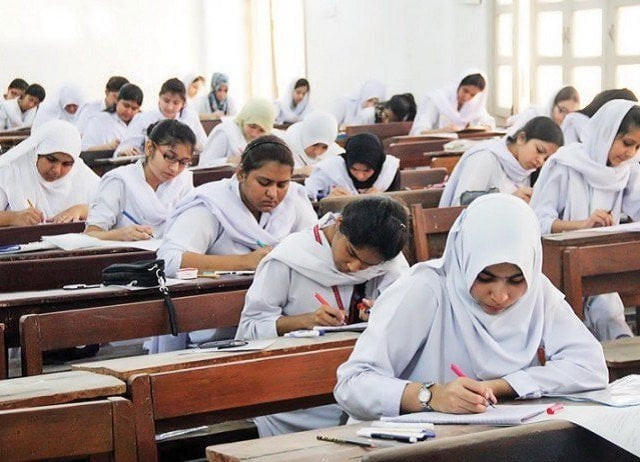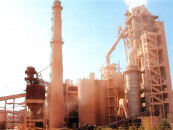PM proposes testing service for matriculation, intermediate exams
Expresses serious concerns over hundreds of examination boards spread across the country

PM Abbasi expresses serious concerns over hundreds of examination boards spread across the country. PHOTO: ONLINE/FILE
The prime minster expressed the concern and need for such central testing body recently at the Council of Common Interests (CCI) meeting, where chief ministers of four provinces were also present.
One of the members, who attended the meeting, stated that the PM expressed serious concerns over hundreds of examination boards spread across the country. “This sprawling trend of boards will harm the harmonisation in education in the country at the secondary and a higher secondary level,” PM Abbasi was quoted as saying.
The discussion ensued from the devolution of the Higher Education Commission (HEC) and distribution of power with regards to implementation of the 18th Amendment that had become a bone of contention among provinces and the commission.
“We must have a uniform system of examinations in the country as already we have dozens of boards spread across the country,” the PM maintained, adding that it was hurting the standardisation of education system as well.
Prime Minister Abbasi then proposed Minister for Federal Education and Professional Trainings Balighur Rehman to work out a proposal in consultation with all stakeholders for the establishment of a national level testing service for holding the aforementioned level examinations simultaneously throughout the country.
The proposal will be shared with the provinces and other members in CCI on its meeting on March 26.
Centralised authority planned for matriculation, intermediate exams in Sindh
Currently, there are 29 boards functioning in four provinces including Azad Jammu Kashmir and Gilgit Baltistan. Besides, there are also five technical and vocational boards in place in the country.
The calls for stardadisation of boards has also been discussed early in meetings of ministry of education, ministry of planning division and inter-provincial education ministers meetings, specifically after the subject of education was devolved to provinces.
The need for uniform curriculum was also passed by the same committee of education ministers after the proposals and concerns of provinces were discussed about the disparity in different education boards in the country.
After the formation of a national curriculum the harmonisation of boards is the subjects the provinces have yet to agree upon. The ministers of the two abovementioned ministeries are striving to hammer out the differences among the provinces and come up cohesive over a standardised system for all the boards.
“The standards do not guarantee an immediate impact. However, they do provide a framework for monitoring that is likely to bring about positive changes over a period of time, depending on how the planning bodies determine the required degrees of compliance for each standard and how closely the implementation is actively monitored and steered in the light of analysed information and proactive trouble shooting,” stated the standardisation document prepared by the Ministry of Federal Education and Professional Training.
The decision for proposed body for secondary and higher secondary level has come at a time when the Higher Education Commission has recently started its Education Testing Council to start free of cost testing examinations for university admissions and scholarship programmes.
The ETC was started when the National Testing Service (NTS) came under criticism for leakage of question papers, misappropriation of funds and lack of proper system to manage the countrywide examination for varsity students.




1724319076-0/Untitled-design-(5)1724319076-0-208x130.webp)














COMMENTS
Comments are moderated and generally will be posted if they are on-topic and not abusive.
For more information, please see our Comments FAQ